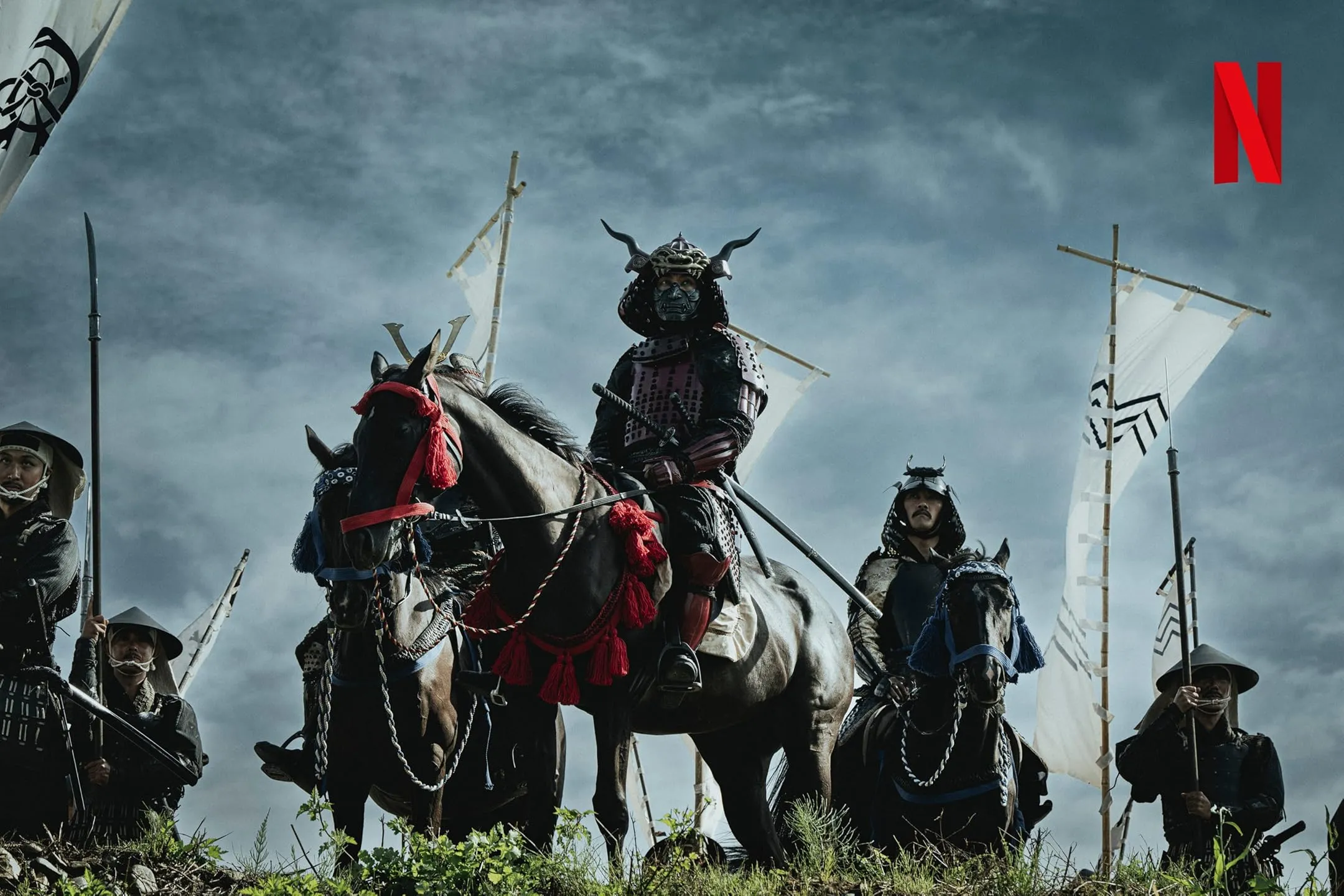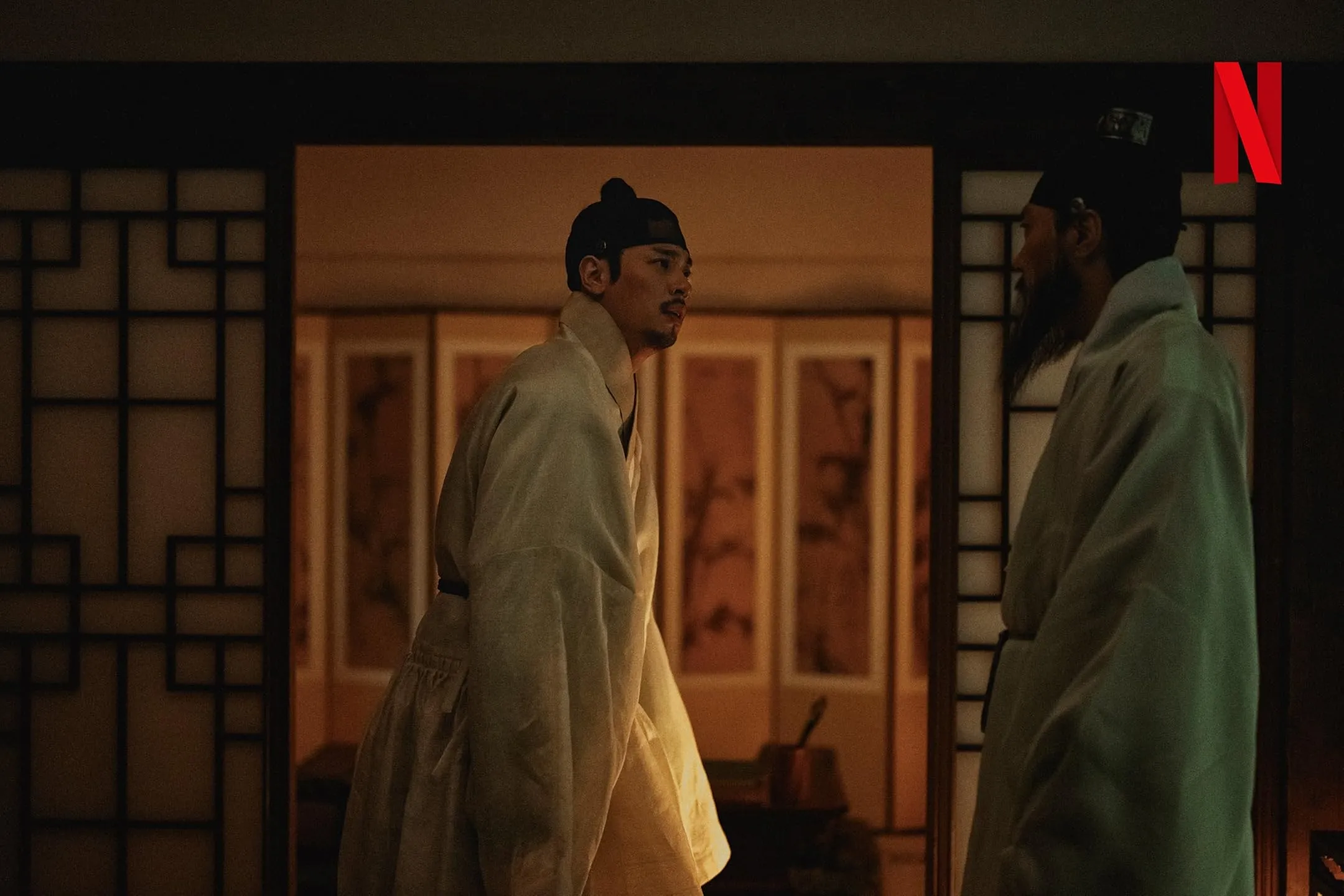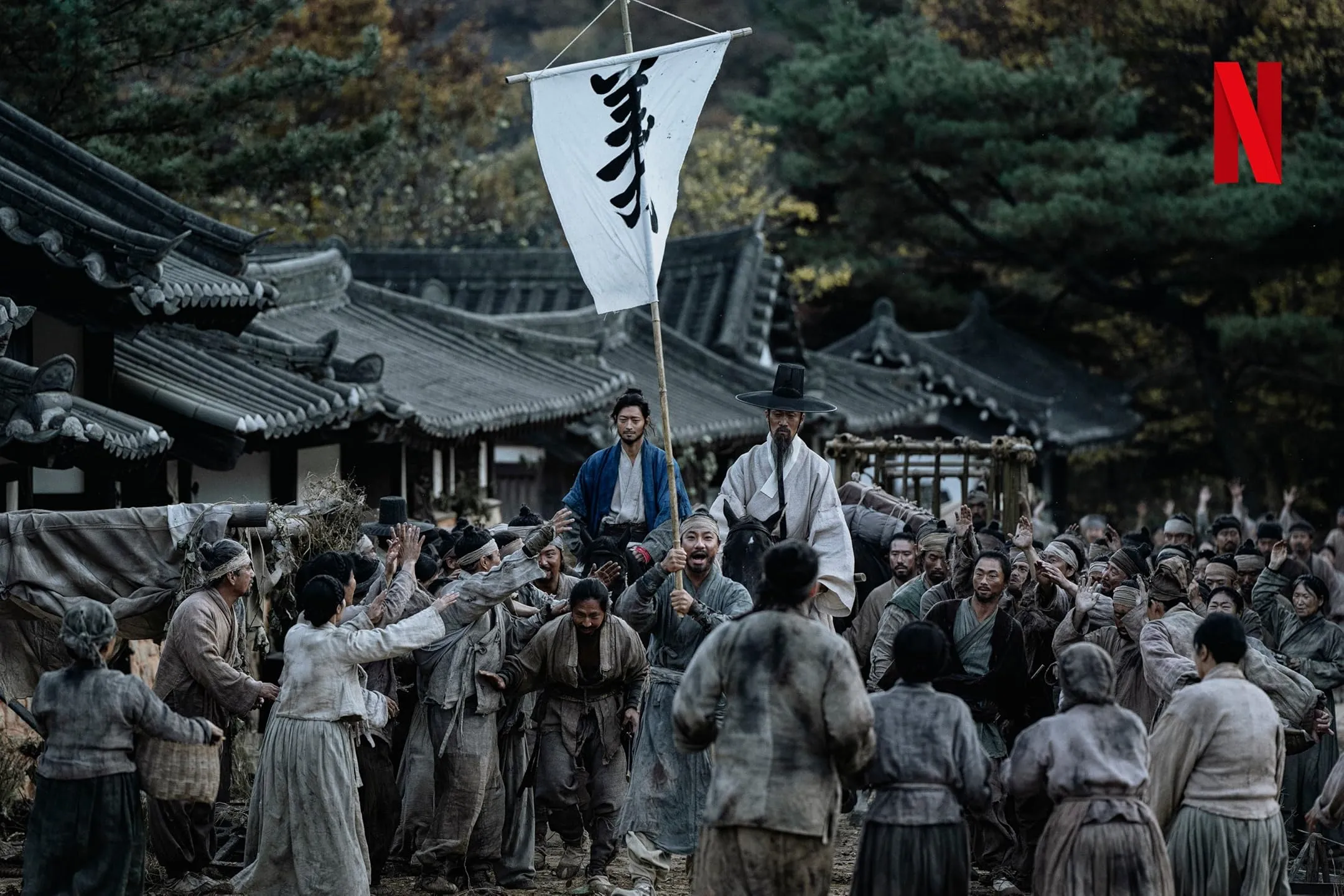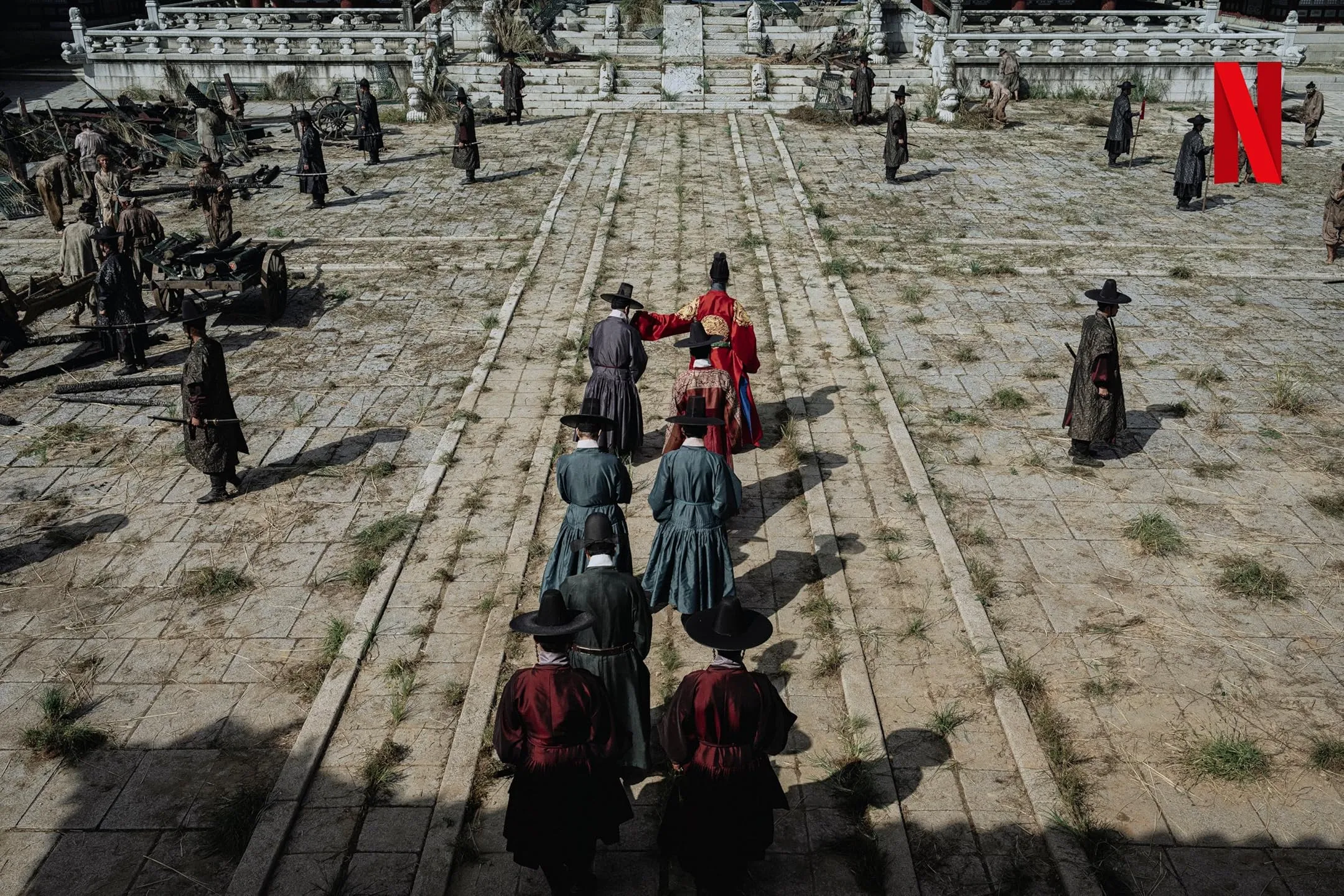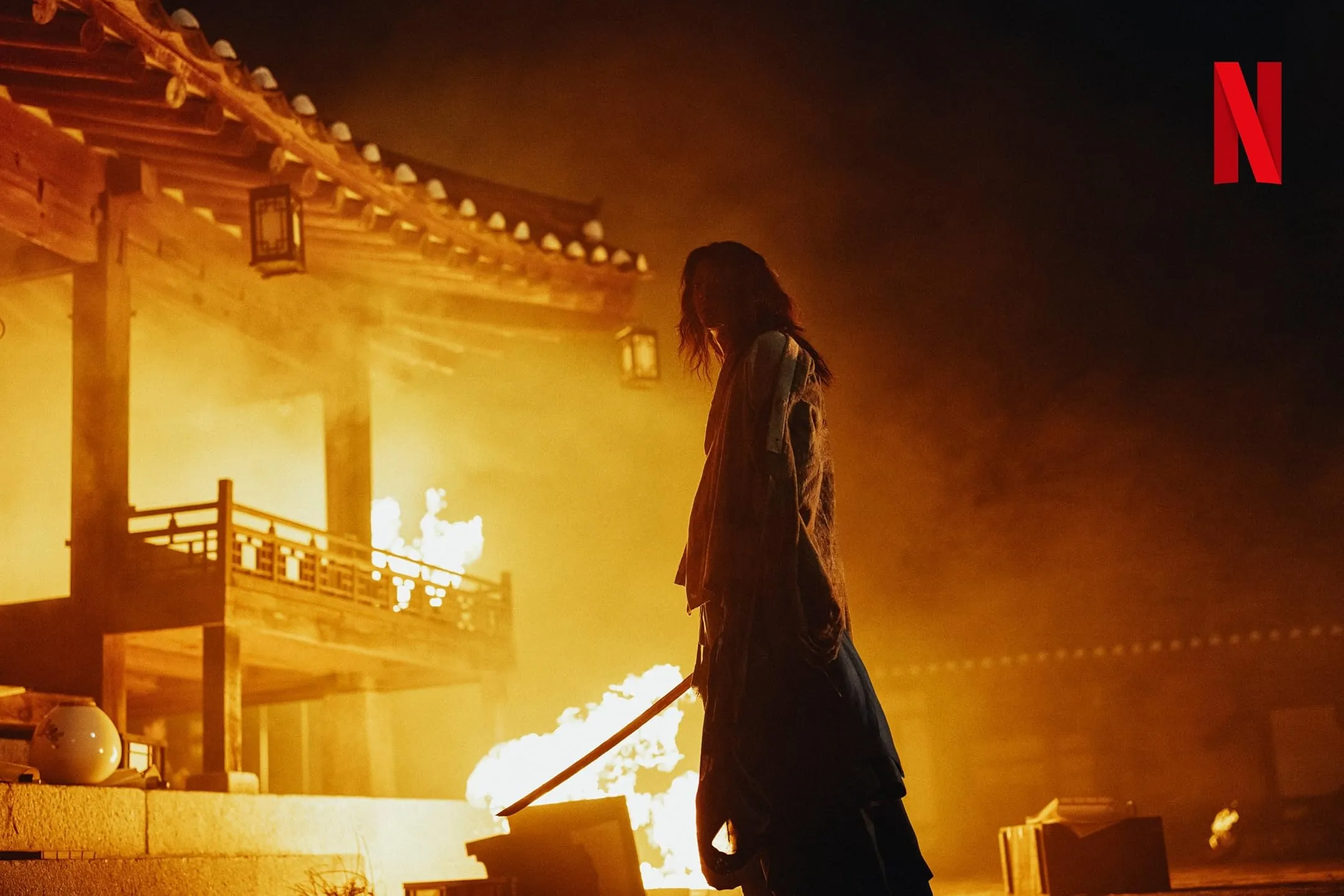In Uprising, directed by Kim Sang-man and co-written by Park Chan-wook, we explore a narrative that challenges standard storytelling conventions. This film, which premiered at the Busan International Film Festival and is now available on Netflix, is more than just a historical drama; it also reflects current cultural issues.
Set in the late 16th century Joseon Dynasty during the Imjin War, the film delves into the complex relationship between Cheon-yeong, a servant, and Jong-ryeo, a lord. Their childhood friendship serves as a lens through which to examine themes of loyalty and class struggle, echoing current discussions of privilege and power dynamics.
The nonlinear narrative style reflects the era’s chaos, encouraging viewers to recreate emotional journeys through flashbacks. This complexity resonates with the storytelling approaches of directors such as Noah Baumbach, who enhance the dramatic stakes of the film. Ju Sung-lim’s cinematography captures Korea’s haunting beauty, while a dynamic score combines traditional and modern sounds to immerse us in the narrative.
Finally, Uprising connects independent and popular cinema, combining artistic expression with broad accessibility, reminding us that the past continues to impact the present.
Characters in Conflict: A Deep Dive into Uprising
Uprising’s human relationships provide the film’s backbone, reflecting larger societal themes and connecting with intensely personal experiences. Cheon-yeong, played by Gang Dong-won, is at the heart of this story. Cheon-yeong’s path, as a servant constrained by societal rank, is tragic and transformative.
He begins as Jong-ryeo’s body double, enduring physical punishment to defend his master. As the narrative progresses, he develops into a folk hero, leading a rebellion against oppression. This transition emphasizes an important theme: the battle for autonomy in a world that wants to define one’s worth entirely by social class. Cheon-yeong’s tenacity and resilience resonate with audiences, reflecting current discussions about class and identity.
On the other hand, we have Jong-ryeo, played by Park Jeong-min. His status as the son of a noble family provides an intriguing dichotomy: he is both privileged and emotionally troubled. His background instills a sense of entitlement and deep internal turmoil, especially when he blames Cheon-yeong for personal misfortunes.
This complex emotional environment exemplifies how expectations may destabilize relationships, echoing the generational fears we experience today. As Jong-rye struggles with his identity and the consequences of his decisions, we are reminded of the fragile nature of friendship in the face of societal pressures.
Supporting characters like King Seong and Genshin Kikkawa add to the narrative. King Seong, the epitome of corrupt authority, triggers the rebellion by symbolizing the repressive structures that the protagonists must resist. His self-serving character emphasizes the moral deterioration of the ruling class, a concept that feels especially relevant in today’s political environment. Meanwhile, Genshin Kikkawa adds complexity; he is a merciless enemy who is also a product of his surroundings, demonstrating the multiple character of war.
Uprising expertly weaves personal and political themes in this way, offering a complex tapestry of character development that relates to both individual and community challenges. The film’s ability to depict these nuanced relationships elevates it beyond a combat story and into a heartbreaking investigation of humanity.
Themes of Friendship, Class, and Resistance in Uprising
Uprising expertly blends themes of friendship and betrayal into its narrative fabric, highlighting the deep affinity between Cheon-yeong and Jong-ryeo. Their relationship begins as a childhood friendship based on similar experiences and mutual respect, but societal roles quickly complicate it. Cheon-yeong represents the servant class, while Jong-rye represents the favored elite.
Their paths diverge under the weight of expectation and duty. This dynamic produces a profound investigation of how external influences can sever even the strongest bonds, mirroring contemporary concerns about loyalty and personal integrity in the face of societal demands.
The film also harshly critiques social class and injustice during the Joseon Dynasty. We observe the brutal realities of servitude and the dehumanizing repercussions of class hierarchies through the lens of Cheon-yeong’s hardships.
The contrast between privilege and servitude is apparent; whereas Jong-Seo reaps the benefits of his noble status, Cheon-yeong bears the consequences of his inferior position. This investigation resonates with contemporary audiences, reflecting continuing conversations about social justice and economic inequity. The narrative feels relevant and encourages us to consider our society’s systems and the existing disparities.
Furthermore, Uprising serves as a striking representation of revolution and resistance, capturing the spirit of a people rising against injustice. The film’s depiction of the uprising against the monarchy and foreign invaders is more than just a historical account; it mirrors contemporary aspirations for justice and reform.
The characters’ difficulties reflect larger themes, such as power dynamics and the desire for autonomy. As they traverse the chaos of battle, the film emphasizes the value of group action and the courage required to challenge authority. This thematic complexity recalls the revolutionary spirit of classic French New Wave films, in which personal and political tales frequently intersect to reflect societal transformations.
Uprising transcends its historical context by exploring these themes, offering a timeless commentary on friendship, class struggle, and the quest for justice that resonates strongly today.
Navigating Time: The Plot Structure and Pacing of Uprising
Uprising employs a non-linear storytelling method that ingeniously weaves together the past and present, creating a complex tapestry of character development and thematic resonance. Flashbacks are especially useful since they expose the emotional undercurrents that influence the main characters’ decisions and provide important information.
This style recalls the inventive storytelling in films by directors such as Godard, in which fragmented storylines encourage viewers to interact more fully with the subject. By juxtaposing Cheon-yeong and Jong-ryeo’s youthful innocence with the harsh reality they encounter as adults, the film helps us comprehend their motivations and the stakes at stake.
However, the narrative’s complexity can cause confusion. While the different timeframes enrich the story, they occasionally disrupt the flow, requiring audiences to pay close attention to piece together the emerging relationships. In certain cases, the transitions between timelines are unclear, which may alienate viewers unfamiliar with such narrative frameworks. However, for those who take on this challenge, the payoff is a more immersive experience reflecting the chaotic character of personal and historical upheaval.
Pacing is another crucial part of Uprising that deserves to be addressed. The film combines violent action sequences and quieter, introspective moments, creating a rhythm that keeps viewers engaged.
The fast-paced battle scenes are thrilling, yet they are interrupted by thoughtful periods that allow for character growth. This ebb and flow reflects the dynamics of jazz, my favorite genre, where the interaction of pace and quiet creates a riveting narrative. Overall, while Uprising deals with time and pace issues, it ultimately invites viewers to delve into the nuanced nuances of its characters and their difficulties.
Cinematography and Action Sequences in Uprising
The visual approach of Uprising, directed by cinematographer Ju Sung-Lim, is stunning. The film employs a diverse set of tactics to boost its storytelling. The cinematography brilliantly immerses viewers in this historical environment, with wide landscape shots capturing the tempestuous beauty of 16th-century Korea and intimate close-ups revealing the characters’ inner difficulties.
Color grading is also important; muted tones depict the dismal reality of war, yet vivid hues punctuate times of hope and togetherness, enhancing the narrative’s emotional stakes. This focus on visual detail echoes the French New Wave’s artistic experimentation, in which each frame serves a purpose beyond aesthetics.
The action sequences, particularly the sword fighting scenes, are performed precisely, striking a balance between intensity and artistry. Each combat is more than just a demonstration of technical talent; it also reflects the characters’ inner anguish and development. For example, when Cheon-yeong and Jong-ryeo fight, their conflicts reflect their changing dynamics—from friendship to adversarial conflict. The choreography is fluid and ruthless, capturing the chaos of battle while retaining a poetic aspect that reflects the film’s larger themes of loyalty and betrayal.
Furthermore, the intentional use of camera angles, such as low shots that highlight the strength disparity between characters, gives depth to the action. Close-ups during key moments help the audience to feel the weight of each hit, both physically and emotionally. This smart blending of action and character development keeps viewers interested in the narrative’s stakes as much as the spectacle.
Ultimately, Uprising balances its visual storytelling with its action choreography, creating a cinematic experience that resonates on several levels. The film’s ability to weave spectacular images with significant character journeys exemplifies the inventive spirit of contemporary filmmaking, bridging the gap between public appeal and artistic expression.
Score and Sound Design in Uprising
Uprising’s score, composed by the renowned Lee Ji-soo, is critical to enhancing the film’s emotional depth. The soundtrack seamlessly blends traditional Korean instruments with modern orchestral components and conveys a sense of nostalgia and intensity.
This fusion not only puts the film in its historical context but also resonates with modern audiences, reflecting a generational movement toward hybrid cultural forms. Each musical cue highlights the emotional travels of the characters, heightening times of tension and compassion alike in the score.
The sound design enhances the film’s immersive experience. The sound effects are meticulously detailed, from the clang of swords to the ambient sounds of battle, creating a visceral atmosphere that draws viewers into the heart of the action.
Many auditory sources raise the stakes, allowing viewers to feel each confrontation’s weight and the uprising’s palpable suspense. The score and sound design work together to create a cinematic experience that resonates strongly, recalling both the historical and the personal in a way that feels immediate and relevant.
Conclusion and Final Thoughts on Uprising
Uprising shines as a riveting historical film, expertly mixing a rich narrative with beautiful images and a moving score. Its creative narrative, particularly the non-linear style, challenges viewers to engage profoundly with the characters’ emotional landscapes.
The cinematography is superb, capturing both the grandeur of the era and the intimacy of personal suffering, and the sound design adds significantly to the film’s immersive quality. However, some viewers may find the shifting timelines unsettling, which could reduce the overall impact for those unfamiliar with such narrative complexity.
Finally, Uprising significantly contributes to contemporary cinema by mixing personal and political storylines in a way that feels both current and eternal. It resonates with contemporary societal fears about class and identity, making it relevant to today’s audience.
I recommend this film to anyone who enjoys historical dramas, strong character development, and inventive storytelling. Fans of directors like Greta Gerwig and Noah Baumbach will find much to enjoy in Uprising, which successfully balances broad appeal and creative ambition. Prepare yourself for an emotional journey that will have you reflecting on its themes long after the credits roll.
The Review
Uprising
Uprising is a visually spectacular and emotionally impactful film that masterfully combines non-linear storytelling and strong character development. Its unique cinematography and strong sound design boost the narrative, making it an important contribution to the historical genre. While the film's shifting eras may challenge some viewers, its discussion of class and identity remains vitally relevant. A strong reflection on friendship, betrayal, and resistance resonates with modern viewers.
PROS
- Innovative non-linear storytelling that deepens emotional impact.
- Stunning cinematography that captures both grandeur and intimacy.
- Powerful sound design that enhances immersion.
- Strong character development and thematic exploration of class and identity.
- Engaging action sequences that balance intensity with narrative depth.
CONS
- Shifting timelines may confuse some viewers.
- Occasional pacing issues that disrupt narrative flow.
- Some historical context may feel underexplored.









































